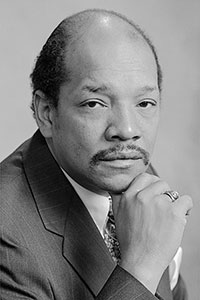
Professor of black world studies says it’s time to address racial and societal fault lines
Behind the news with Rodney Coates

Rodney Coates
by Carole Johnson, university news and communications
Rodney Coates, interim director of black world studies, says events like last week’s deadly shooting in Charleston, South Carolina, emphasize the need to address what he describes as “racial and societal fault lines” in the United States.
Nine black Americans were killed while attending a Bible study in a historic church in Charleston. The perpetrator’s reason: to begin a race war, according to investigator reports. In response, a national outcry prompted a push to remove the Confederate flag from government buildings, license plates and from store shelves.
“I think sanity is prevailing,” said Coates, professor of sociology and black world studies, and at Miami University for 26 years.
“It’s good that symbols are coming down, but we have to have the guts now for more critical conversation,” he said.
Coates points out some key discrimination topics for discussion.
Q: What place should the Confederate flag have in our country?
A: We must be reminded of history or history will repeat itself.
The Rebel flag is a symbol from our history that represented a period of time in the United States when we had radical divisions of race, with one group declared human and others — African Americans, Native Americans, Hispanics— less than.
We cannot dismiss the actions by this troubled young man in Charleston. They point back to this period. He wanted to fan the flame of hatred. These are our racial fault lines.
Q: What do you mean by fault lines?
A: America created them through oppression. It’s time to address the stressors that are causing cracks in a number of America’s societal fault lines.
History tells us that pushback occurs when a particular group shows progress. There are people who are unsettled by our most recent events: election of a black president, the potential of a woman for president and legalization of gay marriage. In their minds, they long for the “good old days,” which actually weren’t, but they will fight for their nostalgic reality.
Q: What about the young people of our nation who really don’t have nostalgic reference?
A: We must address the young people of America. We need effective public education where Johnny and Kamika both learn to read and write. Young children today look at the promises of America and feel left out. They are frustrated. This leads to violent crime in retaliation. It breeds the insanity we see today exploding those fault lines open. Not only do we need to treat the symptoms, but also we need to address the causes. We need to make the promise of freedom a reality in everyone’s lives.
Rodney Coates is professor in the department of global and intercultural studies. He is currently serving as the interim director of the black world studies program at Miami University. He received his doctorate in sociology from the University of Chicago. His research interests include race and ethnic relations, stratification, urban sociology and political sociology.
